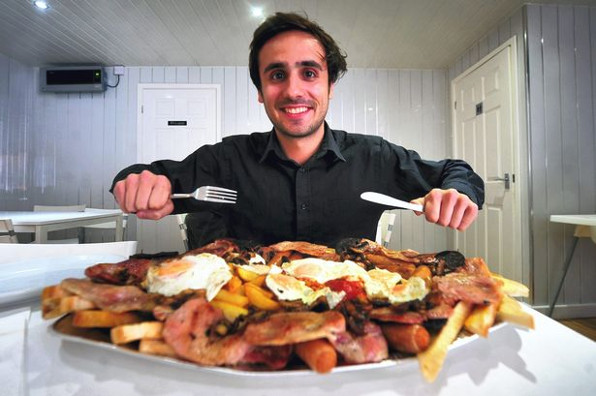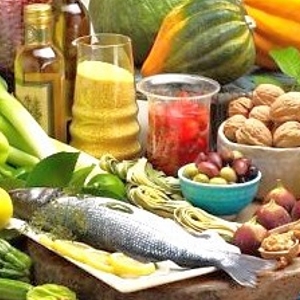A new online app developed by a team at the University of Bergen, Norway, claims to predict how many extra years of life you can expect to ‘earn’ by making the right dietary choices early in life. The question is: Will those who can benefit most actually use this tool?
 Twenty-somethings think they’re bullet-, obesity-, cardio disease-, and cancer-proof…
Twenty-somethings think they’re bullet-, obesity-, cardio disease-, and cancer-proof…
The Food4HealthyLife calculator analyses the diets of 20-s0mething young adults and makes suggestions for changes which its developers claim can add as much as a decade to subjects’ lives.
Dr. Lars Fadnes and his team set up an app that asks users to input their daily consumption of 14 different food types, then offers the opportunity to see how a change in the amount of each could add or subtract years from their lives.
According to an abstract of the calculator development report: “A young adult in the U.S. could add more than a decade to their life expectancy by changing their diet from a typical Western diet to an optimized diet that includes more legumes, whole grains and nuts, and less red and processed meat, according to a new study. For older people, the anticipated gains to life expectancy from such dietary changes would be smaller but still substantial.”
“Understanding the relative health potential of different food groups could enable people to make feasible and significant health gains,” the authors add. “The Food4HealthyLife calculator could be a useful tool for clinicians, policy makers, and lay-people to understand the health impact of dietary choices.”
Merges a vast amount of info
The app merges a huge amount of information on the nutritional effects of eating the foods included in the calculator over long periods of time. In other words, the lifetime effect.
Initial results indicate that the average 20-year-old woman could gain 10.7 years of life expectancy while the average 20-year-old man could gain 13.0 years by adopting an optimized diet – not unlike the Mediterranean Diet we keep hearing about, and the eating habits recommended by the vast majority of official government nutrition guides.
Changing from a typical diet to the optimized diet at age 60 could still increase life expectancy by an average of 8.0 years for women and 8.8 years for men, and 80-year-olds could gain an average of 3.4 years.
My take
I have no bones to pick about the calculator or its creators. I believe the numbers Fadnes and his team have come up with. I’m particularly heartened by their assertions that even older folks can benefit from a change in their diet, even if not so much as the 20-somethings. But I have some serious doubts about the eventual benefits the calculator will yield, even if it is widely ‘prescribed’ by physicians and nutritionists and other experts on diet and health.
First: There is a substantial subgroup of humanity that would answer ‘NO’ to the question: “If you could know the exact moment, or even just the day you’ll die, would you want to know?”
Second: If your doctor ‘prescribed’ the calculator as an exercise you must perform, and further prescribed that you follow its recommendations for increasing some foods and decreasing others – would you do it? It’s the same kind of personal choice as wanting, or not wanting to know when you’ll die.
Third: How many 20-somethings will be moved to play with the app and see what they could do now to lengthen their lives later? Kids at age 20 are just starting out, spreading their wings and trying out their adulthood. They’re bullet-proof, and old age is an unimaginably long time away. They’ll deal with that when they have to…
Fourth: Those of us who are interested in eating right and optimizing our health and wellness profiles have probably already got to work on that goal. The app will be amusing for us to play with, but in the end it will probably only express in hard numbers what we already know.
So…
What eventual impact will the Food4HealthyLife calculator have on the health and wellness of western society?
Muse on that.
~ Maggie J.

